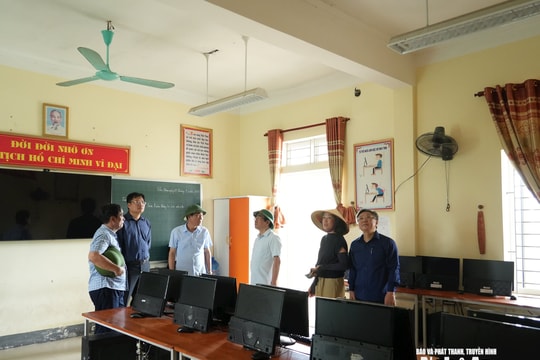rude
(Baonghean.vn) - Obviously, we Vietnamese are extremely concerned about educating our children because as I said above, children are the measure, the mirror that reflects our image in the eyes of others. But it is also that mindset that makes us unintentionally educate our children in the wrong and distorted way.
Among the ways to insult a person, the phrase “bastard” is actually more severe than we think. Objectively speaking, “bastard” is not as vulgar as many other curses, but it is “powerful” in that it kills two birds with one stone. Saying a person is “bastard” means saying that person is the result of a bad education, and also slapping his parents in the face. The power of “swearing” lies in that, because sometimes vulgar words may seem to be insulting others but actually defame themselves.
A very common way to judge and comment on a person is based on their reflection on those close to them, or how they treat those close to them. For example, if I go out and see a naughty child, my judgment will be directed more towards the parents than the child himself. The same goes for the opposite. Understanding this psychology of parents, many "naughty" children take advantage of crowded places to beg their parents to buy a toy, a food or even reach some "agreement". All because of the psychology of shame and fear of being judged by parents when their children do something inappropriate in public.
In fact, this is a wrong and shallow way of thinking about parenting. Proper parenting requires a clear distinction between right and wrong, yes and no. A wrong behavior in public cannot become right when its context is at home. The child’s (and parent’s) perception of right and wrong must be consistent and personal, rather than dependent on the number of people present. I have witnessed children demanding phones or personal belongings from strangers in public and their parents were powerless to control their whining. This proves that this whining has become a habit approved by the parents at home and the child is simply following its habit. There are parents who will be extremely embarrassed and apologize to the person being bothered and take the child away, but there are also parents who will “shamelessly” ask the person being bothered to give in to the child’s request. Some people agree, some do not. There were expensive phones being thrown and broken. Whose fault was it? The child’s? The parents’? Or the people who, out of desperation, assisted in a wrong education?
Obviously, we Vietnamese are extremely concerned about educating our children because, as I said above, children are the measure, the mirror that reflects our image in the eyes of others. But it is also that mindset that makes us unintentionally educate our children in the wrong and distorted way. We teach them to display a moral face in public and judge right and wrong based on what people say instead of educating them to be kind people without being influenced by anyone or by any external reasons. That kindness must be consistent at all times, everywhere, with everyone regardless of high or low status or closeness.
After all, are people who don't feel too angry when others call them "bastards" like other vulgar phrases because they are not really educated?

.jpg)



.jpg)
.jpg)

